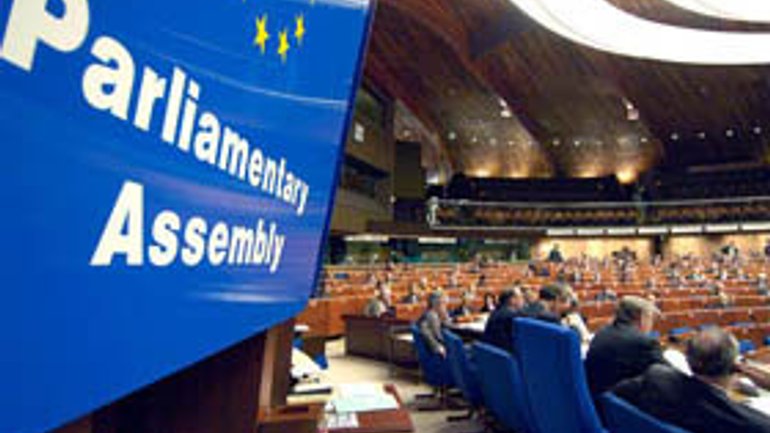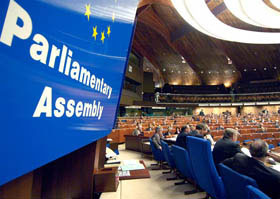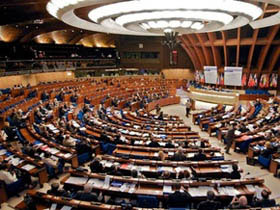PACE to Consider Issue of Discrimination on Basis of Sexual Orientation and Gender Identity

 STRASBOURG — During its January session of 2010, the Parliamentary Assembly of the Council of Europe plans to consider a number of questions directly connected with the freedom of religion in Europe and activity of religious organizations in the area of protection of morality in the society. One of the points of the agenda of the session deals with the issue of discrimination on the basis of sexual orientation and gender identity, reports the Institute of Religious Freedom.
STRASBOURG — During its January session of 2010, the Parliamentary Assembly of the Council of Europe plans to consider a number of questions directly connected with the freedom of religion in Europe and activity of religious organizations in the area of protection of morality in the society. One of the points of the agenda of the session deals with the issue of discrimination on the basis of sexual orientation and gender identity, reports the Institute of Religious Freedom.
The session is to be held in Strasbourg, France, from January 25 to 29, 2010. Ukraine is represented in the Parliamentary Assembly's permanent delegation by 27 Ukrainian deputies.
 On January 27 the reporter of the Committee on Legal Affairs and Human Rights Mr. Andreas Gross, (Switzerland) is to present this issue. Below please see the summary of the report posted by the site of the Council of Europe.
On January 27 the reporter of the Committee on Legal Affairs and Human Rights Mr. Andreas Gross, (Switzerland) is to present this issue. Below please see the summary of the report posted by the site of the Council of Europe.
Discrimination on the basis of sexual orientation and gender identity
Summary
The Committee on Legal Affairs and Human Rights points out that sexual orientation – be it heterosexuality, bisexuality, or homosexuality – is a profound part of the identity of each one of us. Under international law nobody should be treated differently because of their sexual orientation. Yet lesbian, gay, bisexual, and transgender people across Europe still face deep-rooted prejudice and widespread discrimination. This can range from physical violence – including, in the worst cases, killings – through to hate crimes, gags on expression, bans on demonstrations, state intrusion into private life, and unfair treatment at school or in the workplace.
Transgender people are refused gender reassignment treatment or told they cannot register their new gender, contributing to high rates of suicide in this group.
These human rights violations must end, as well as incitement to commit them from public figures, according to the committee. Meanwhile, Council of Europe member states should ensure legal recognition of same-sex partnerships, providing notably for "next of kin" status and the possibility to jointly parent each others' children, if not also the right of each partner to adopt the other partner's children.
Dialogue between all bodies, based on mutual respect, is essential in order to improve mutual understanding, combat attitudes of prejudice, and facilitate public debates and reforms on issues concerning lesbian, gay, bisexual, and transgender people.









